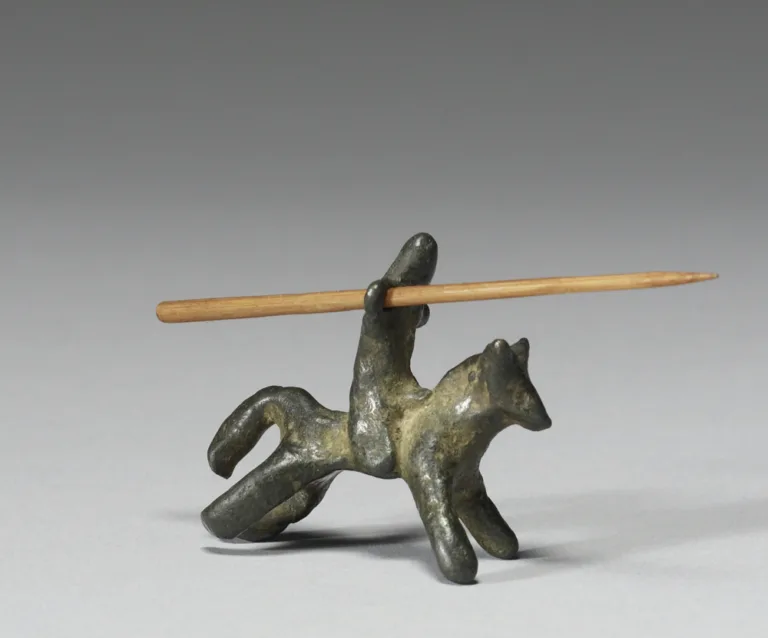Menu

Pictured: One of the earliest extant toy soldiers; 13th-14th century Europe; bronze. Image via the Walters Art Museum.
This episode of the TWCF-supported podcast Many Minds features Dr. Michelle Langley, an archaeologist at Griffith University in Queensland, Australia. She shares how looking at universal aspects of children’s play across cultures might help archaeologists infer more about the lives and roles of children throughout history.
“When we think about ancient humans, we often imagine them doing certain kinds of things. Usually, very serious things like hunting game and making tools, foraging for food and building fires, maybe performing the occasional intricate ritual. But there was definitely more to the deep past than all this adulting. There were children around, too — lots of them — no doubt running around and wreaking havoc, much as they do today. But what were the kids up to, exactly? What games were they playing? What toys did they have? What were their lives like?
There was definitely more to the deep past than 'adulting'. There were children around...no doubt running around and wreaking havoc, much as they do today. But what were the kids up to, exactly?
My guest today is Dr. Michelle Langley, an archaeologist at Griffith University in Queensland, Australia. Michelle grapples with questions about children, play, and childhood in the deep past. In recent work, she draws on ethnographic reports to assemble a picture of what children have in common all across the globe. She then uses that understanding to cast new light on the archaeological record, to make fresh inferences about what kids must have been doing, making, and leaving behind.
In this conversation, Michelle and I talk about the kinds of basic activities that have long been a mainstay of childhood everywhere — activities like playing with dolls, keeping pets, collecting shells, and building forts. We discuss how archaeologists often assume that hard-to-interpret objects have ritual purpose, when, in fact, those objects could just as easily be toys. We talk about how children seek out and engineer 'secret spaces'. We also touch on how a male-centric bias has distorted archaeological discussions; how the baby sling may have been the primordial container; and how otters stash their favorite tools in their armpits.”
Templeton World Charity Foundation's Diverse Intelligences is a multiyear, global effort to understand a world alive with brilliance in many forms. Its mission is to promote open-minded, forward-looking inquiry in animal, human, and machine intelligences. We collaborate with leading experts and emerging scholars from around the globe, developing high-caliber projects that advance our comprehension of the constellation of intelligences.
Many Minds is a project of the Diverse Intelligences Summer Institute (DISI), made possible through a grant from TWCF to the University of California, Los Angeles (UCLA). The Many Minds podcast is hosted and produced by Kensy Cooperrider, with help from assistant producer Cecilia Padilla. Creative support is provided by DISI Directors Erica Cartmill and Jacob Foster. Artwork is by Ben Oldroyd.




